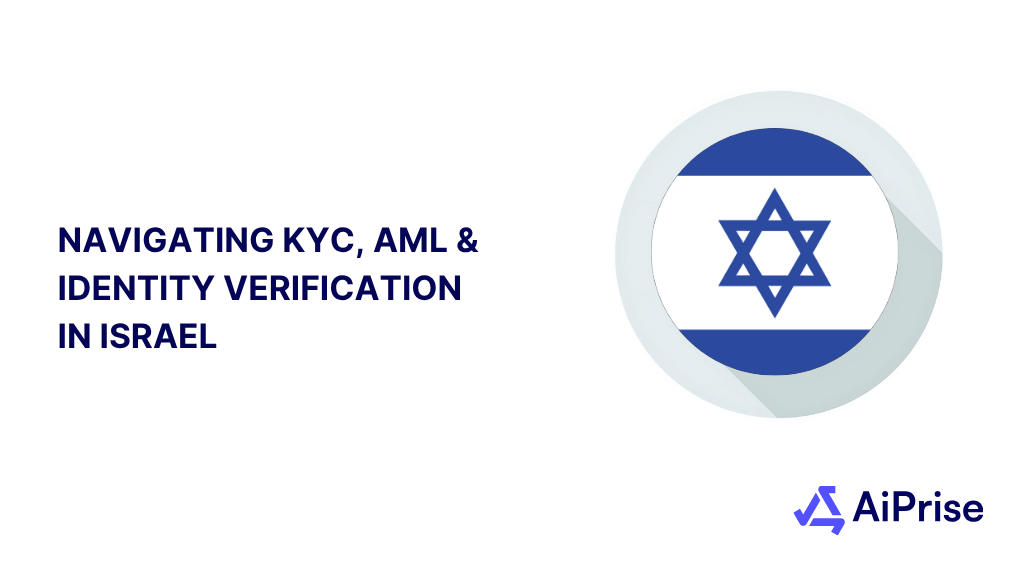AiPrise
5
September 4, 2025
How to Avoid and Detect KYC Fraud
.png)
Key Takeaways










Fraud is a growing threat that costs financial institutions worldwide an estimated $5 trillion annually. As fraudsters become more sophisticated, businesses in sectors like finance, payments, and cryptocurrency face increasing pressure to protect themselves and their customers. If you're part of a financial institution, payment provider, or similar business, you understand how difficult it is to stay ahead of fraud.
Ensuring your Know Your Customer (KYC) processes are secure and compliant isn't easy. Fraudsters use complex tactics, making it difficult for businesses like yours to spot risks early. Even with the best verification systems in place, fraudulent activities continue to slip through.
In this blog, we'll explore how to detect and avoid KYC fraud. We'll discuss common types of fraud, detection strategies, and best practices for preventing fraud.
Key Takeaways
- KYC fraud occurs when fraudsters use false or stolen identities to gain unauthorized access to financial services.
- Common fraud types include identity theft, synthetic identity fraud, document manipulation, and impersonation.
- Detecting KYC fraud requires attention to inconsistencies in information, suspicious documents, and unusual transaction patterns.
- To prevent fraud, implement strong verification systems, conduct regular audits, and train your team to recognize red flags.
- If fraud is detected, suspend the account, investigate, report to authorities, and update your security measures promptly.
What is KYC Fraud?
KYC fraud occurs when individuals or organizations use false or stolen information to bypass identity verification processes. This type of fraud harms businesses that rely on accurate customer data for compliance and security. Fraudsters often create fake identities, alter documents, or steal personal information to access financial services and commit illegal activities. These actions put both businesses and customers at risk.
The goal of KYC fraud is often to conceal illicit activities such as money laundering, terrorist financing, or other financial crimes. Businesses must have effective detection measures to protect themselves and their customers. Without proper safeguards, KYC fraud can lead to significant economic losses, regulatory penalties, and damage to your reputation.
Also Read: Steps to Know Your Customer (KYC) Compliance and Reducing Fraud
Now that we've defined KYC fraud, let's take a closer look at the common types businesses need to watch for
4 Common Types of KYC Fraud
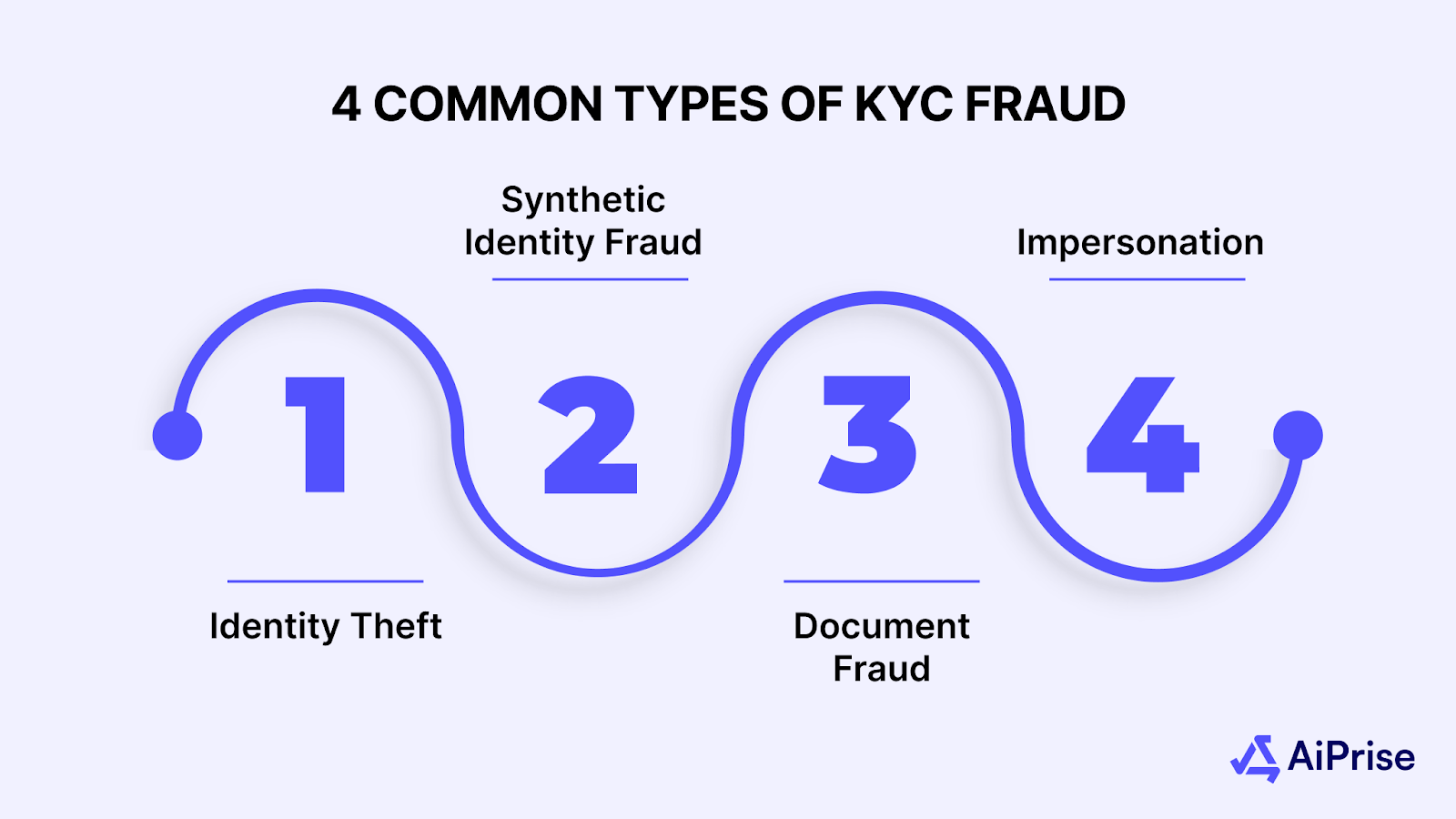
KYC fraud takes many forms, and understanding these common tactics can help you detect and prevent them. Fraudsters are always coming up with new methods to bypass security measures and identity verification processes. Here are the most prevalent types of KYC fraud:
- Identity Theft: Fraudsters steal personal information to create fake accounts and gain unauthorized access to financial services, putting businesses and customers at risk.
- Synthetic Identity Fraud: Fraudsters create a fake identity using a mix of real and fabricated information to bypass verification.
- Document Fraud: Fraudsters submit fake or altered documents, such as passports or driver's licenses, to verify identity.
- Impersonation: Criminals use forged credentials to impersonate someone else and gain unauthorized access to services.
Also Read: Common Types of Business and Financial Fraud
Once you're familiar with the types of KYC fraud, the next step is understanding how to spot these risks.
How to Detect KYC Fraud?
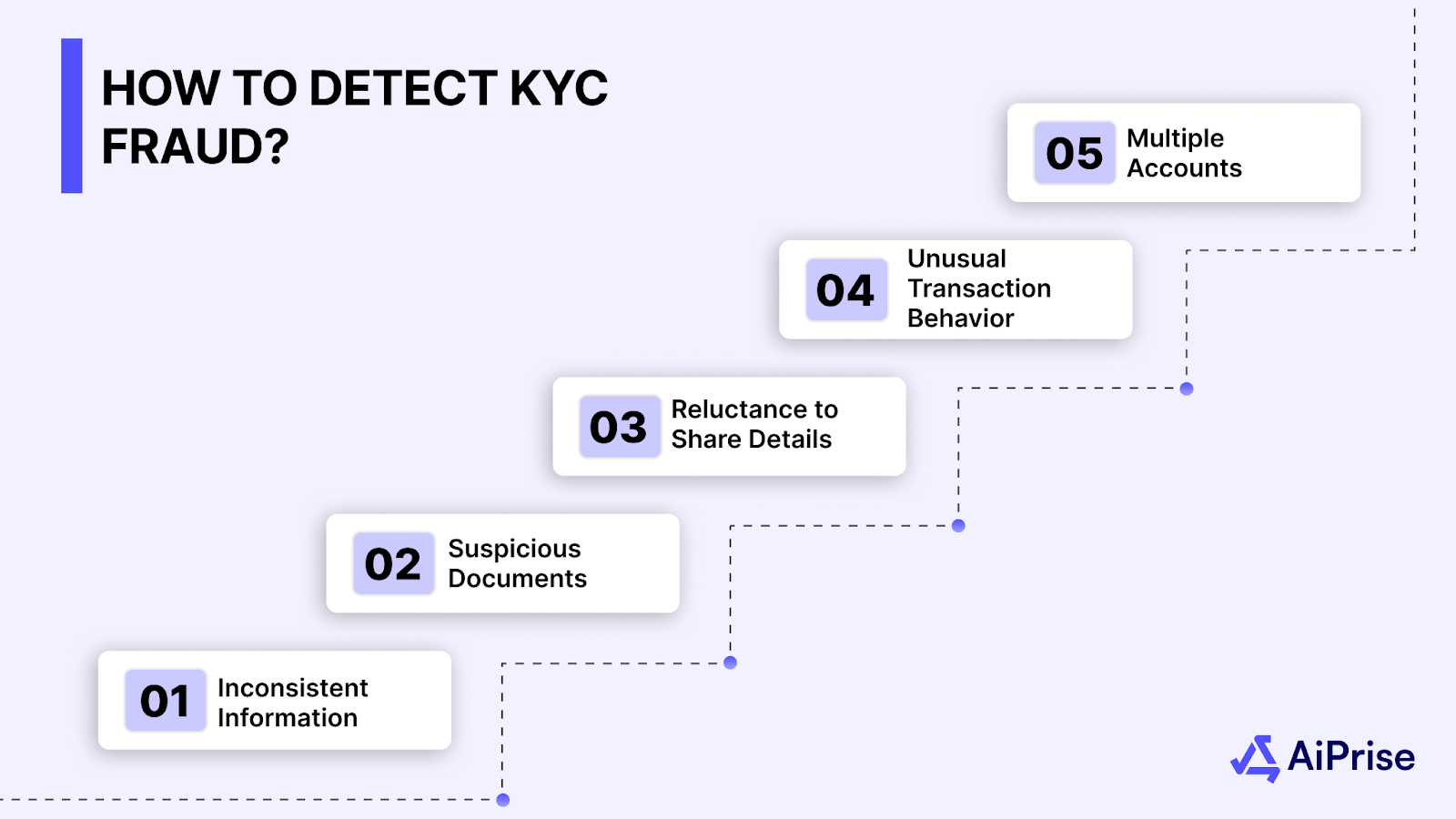
Detecting KYC fraud requires vigilance and attention to detail at every step of the customer verification process. Fraudsters are skilled at manipulating or falsifying their identities, so businesses need practical methods to spot discrepancies early. Here are some key signs that could indicate potential KYC fraud:
- Inconsistent Information: Look for mismatches in personal details such as addresses, dates of birth, or names. Any inconsistencies should raise suspicion.
- Suspicious Documents: Pay attention to documents that seem poorly scanned, altered, or lack proper security features.
- Reluctance to Share Details: If a customer hesitates to provide necessary information, it could indicate fraudulent intent.
- Unusual Transaction Behavior: Large or rapid changes in transaction patterns shortly after account creation should be flagged.
- Multiple Accounts: Multiple accounts with similar personal details or linked transactions may signal identity manipulation.
By staying alert to these indicators, you can improve your ability to detect and prevent KYC fraud. Now, let's explore some essential dos and don'ts to protect your business from fraud further.
Also Read: How to Detect Financial Services Fraud: A Practical Guide for Businesses
Dos and Don'ts to Prevent KYC Fraud
Preventing KYC fraud starts with clear procedures and knowing the proper steps to take at every stage. By following well-established best practices, you can reduce risks and keep your processes secure. Here are the dos and don'ts to consider:
- Dos:
- Implement Strong Verification Systems: Use biometric authentication and AI-powered tools to verify documents and personal details.
- Conduct Regular Audits: Review your KYC processes regularly to ensure they align with current regulations.
- Adopt a Risk-Based Approach: Assess customers based on their risk profiles and adjust scrutiny for higher-risk clients.
- Monitor Transactions Continuously: Monitor customer accounts and transactions for unusual patterns that may indicate fraud.
- Train Your Team Regularly: Ensure employees are trained to recognize fraud patterns and follow procedures for reporting suspicious activities.
- Don'ts:
- Don't Rely Solely on Manual Checks: Avoid relying only on manual processes, which can lead to human error and missed red flags.
- Don't Ignore Small Inconsistencies: Minor inconsistencies in customer information or documentation should not be overlooked.
- Don't Skip Continuous Monitoring: Fraud can still occur after initial verification, so regular monitoring is essential.
- Don't Overlook Collaboration: Share fraud detection insights and best practices with industry peers to improve security.
Even with strong prevention methods in place, you must be prepared to act quickly when fraud is detected.
What to Do If You Detect KYC Fraud?
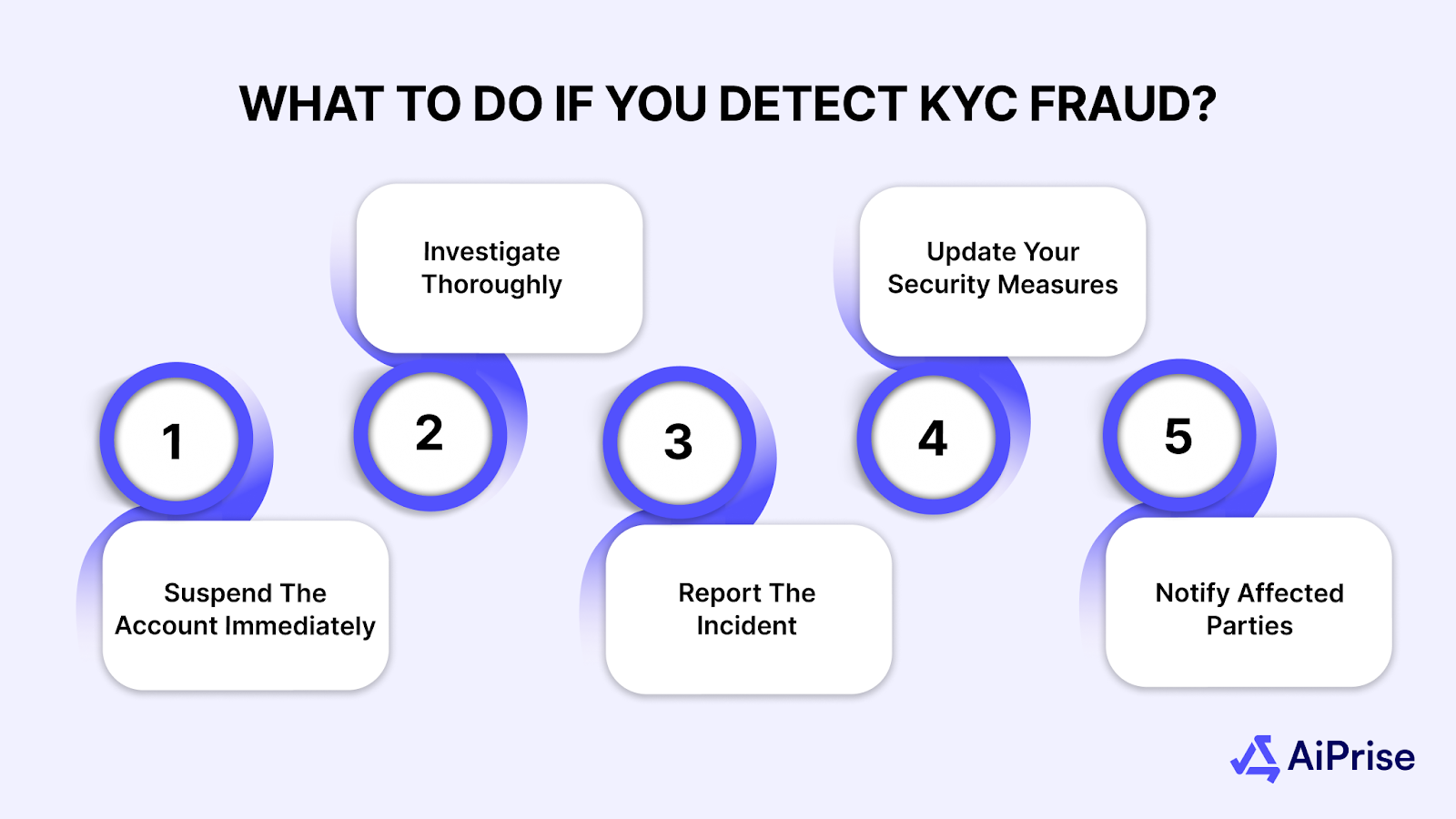
Detecting KYC fraud is just the first step. Once fraud is identified, you must act quickly to minimize damage and prevent further issues. Here are the necessary steps you should take when you detect KYC fraud:
- Suspend the Account Immediately: Suspend the account in question to prevent further transactions or potential damage.
- Investigate Thoroughly: Conduct a detailed internal investigation to determine the scope of the fraud.
- Report the Incident: Notify relevant authorities and regulatory bodies as soon as fraud is detected.
- Update Your Security Measures: Update your security measures to ensure similar fraud doesn't occur again and improve your defenses moving forward.
- Notify Affected Parties: Inform any customers or partners who the fraud may impact.
When fraud is detected, the right tools can help minimize damage. AiPrise is designed to support your business with fraud detection and prevention.
AiPrise for Smarter KYC Fraud Prevention
AiPrise offers a range of tools to help businesses detect and prevent KYC fraud. By combining advanced technology with user-friendly solutions, AiPrise makes it easier to manage compliance and minimize fraud risks. Here's how AiPrise can help:
- Verifies customer identities against official government records to block fraudulent accounts before they slip through.
- Tracks and manages suspicious activity cases in one place, making investigations faster and more efficient.
- Screens customers and transactions against international sanctions and watchlists to detect high-risk clients.
- Integrates KYC and AML checks seamlessly into your onboarding workflows through a lightweight SDK.
- Automates compliance workflows to cut manual errors and improve consistency across teams.
- Simplifies verification with a one-click KYC process that reduces friction for customers while keeping security tight.
- Keeps customer information up-to-date with easy reverification, maintaining accurate risk profiles.
- Analyzes and extracts document data with advanced insights to detect manipulation or fraud.
- Speeds up compliance reviews by up to 95% with the AI-powered Compliance Copilot.
AiPrise's suite of tools helps businesses improve security, reduce fraud, and stay compliant with regulations.
Wrapping Up
KYC fraud remains a significant challenge for businesses across various sectors. Detecting and preventing fraud requires a proactive approach, practical tools, and thorough processes. By adopting effective strategies and using the latest technologies, businesses can lower their risk of fraud and ensure they meet regulatory requirements.
AiPrise offers a comprehensive suite of tools that help you detect fraud, ensure compliance, and enhance your verification processes. If you're ready to take your fraud prevention efforts to the next level, Book A Demo today and see how AiPrise can support your business.
FAQs
1. What Are The Key Signs Of KYC Fraud?
KYC fraud can be identified through inconsistent personal information, suspicious documents, reluctance to provide details, and unusual transaction patterns after account creation.
2. How Can I Prevent KYC Fraud In My Business?
To prevent KYC fraud, implement strong verification systems, conduct regular audits, monitor transactions closely, and train your staff to recognize red flags.
3. Why Is KYC fraud So Damaging To Businesses?
KYC fraud leads to financial losses, regulatory penalties, and a damaged reputation, all of which harm customer trust and business operations significantly.
4. How Often Should I Review My KYC Processes?
You should review your KYC processes regularly, ensuring they comply with the latest regulations and can adapt to emerging fraud tactics and risks.
5. What Should I Do If I Detect KYC Fraud In My Company?
If you detect KYC fraud, suspend the account, investigate thoroughly, report to authorities, and notify affected customers to minimize further damage.
You might want to read these...

AiPrise’s data coverage and AI agents were the deciding factors for us. They’ve made our onboarding 80% faster. It is also a very intuitive platform.





Speed Up Your Compliance by 10x
Automate your compliance processes with AiPrise and focus on growing your business.




.jpg)




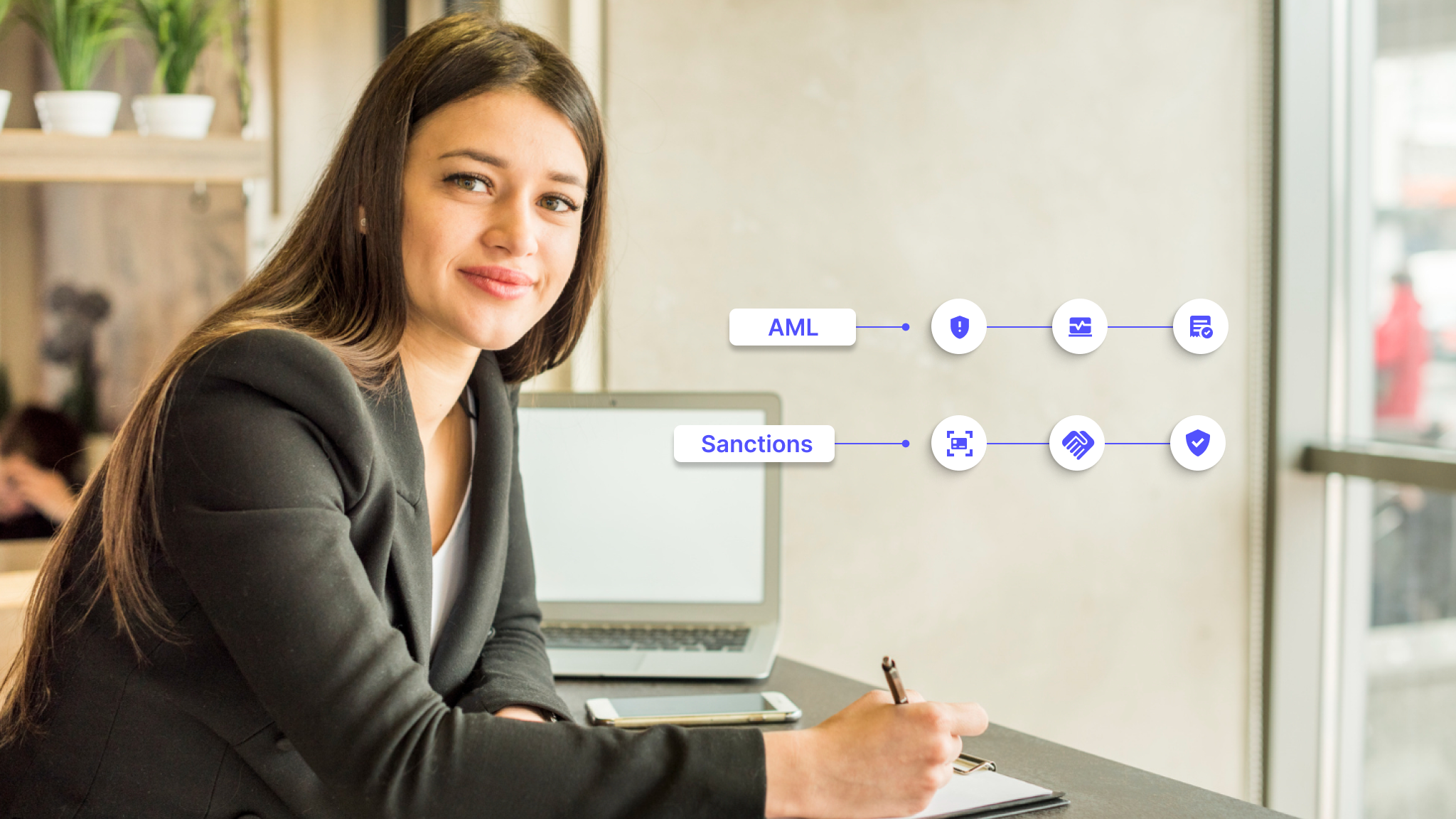











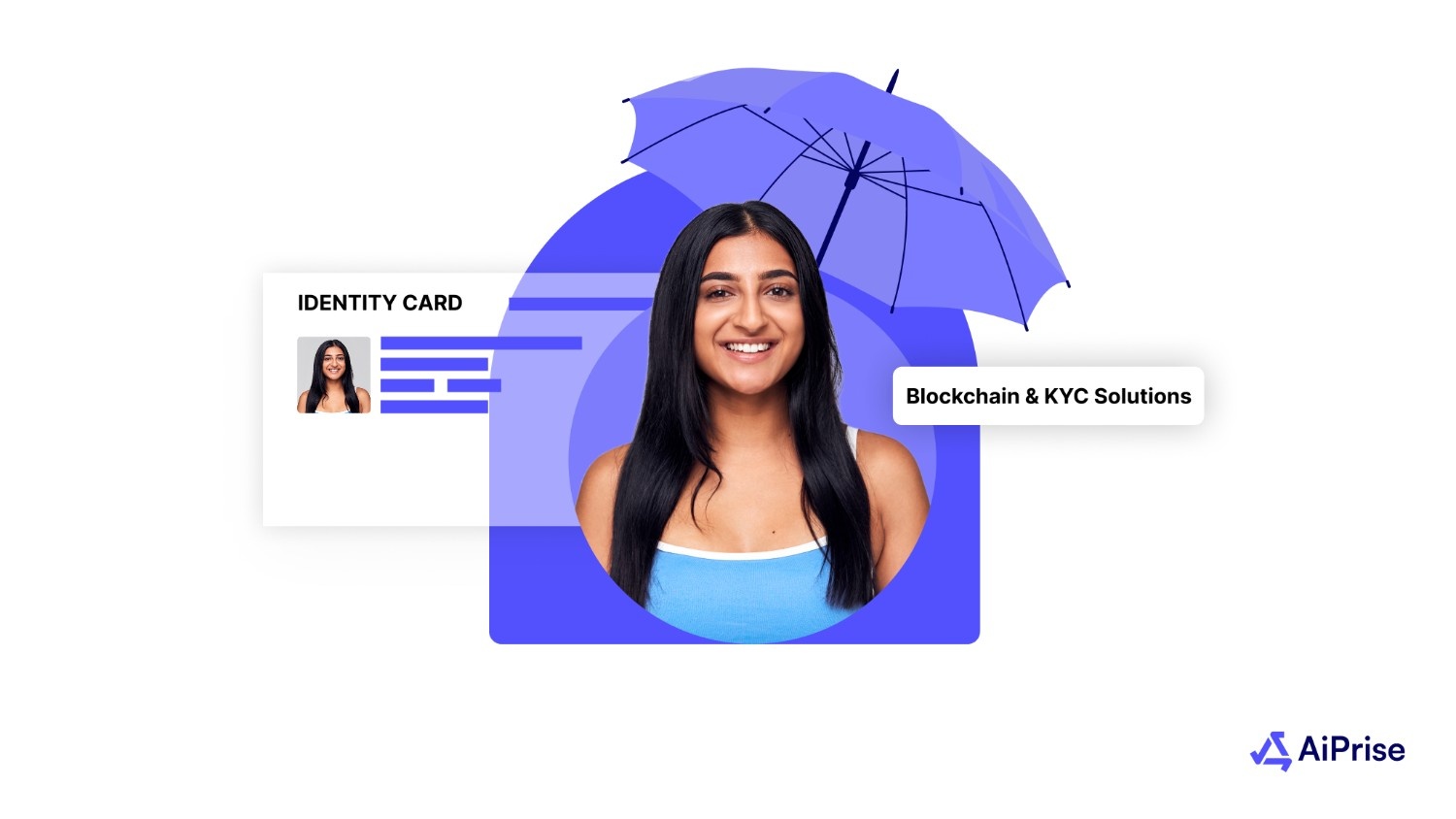

.jpeg)

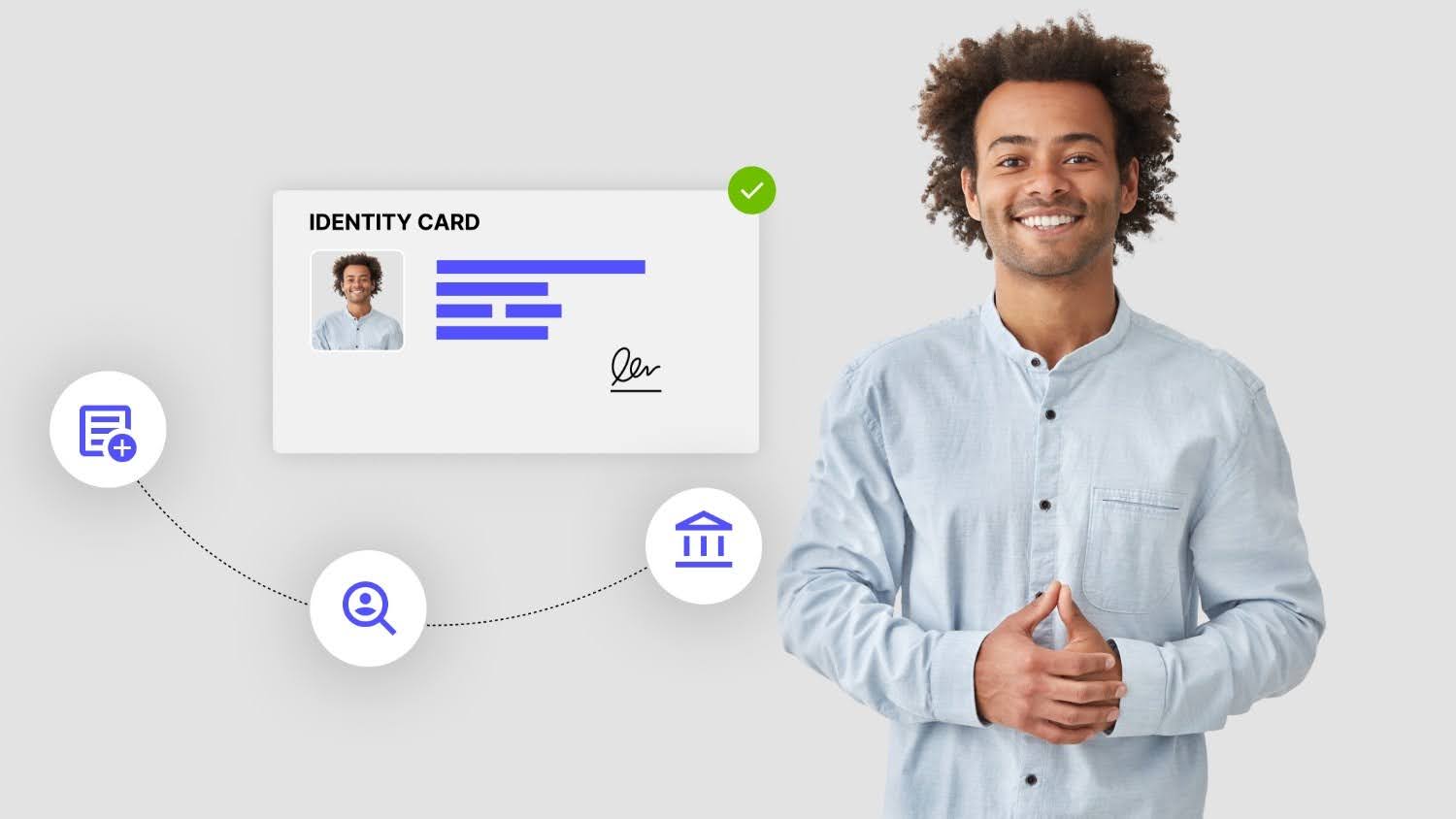

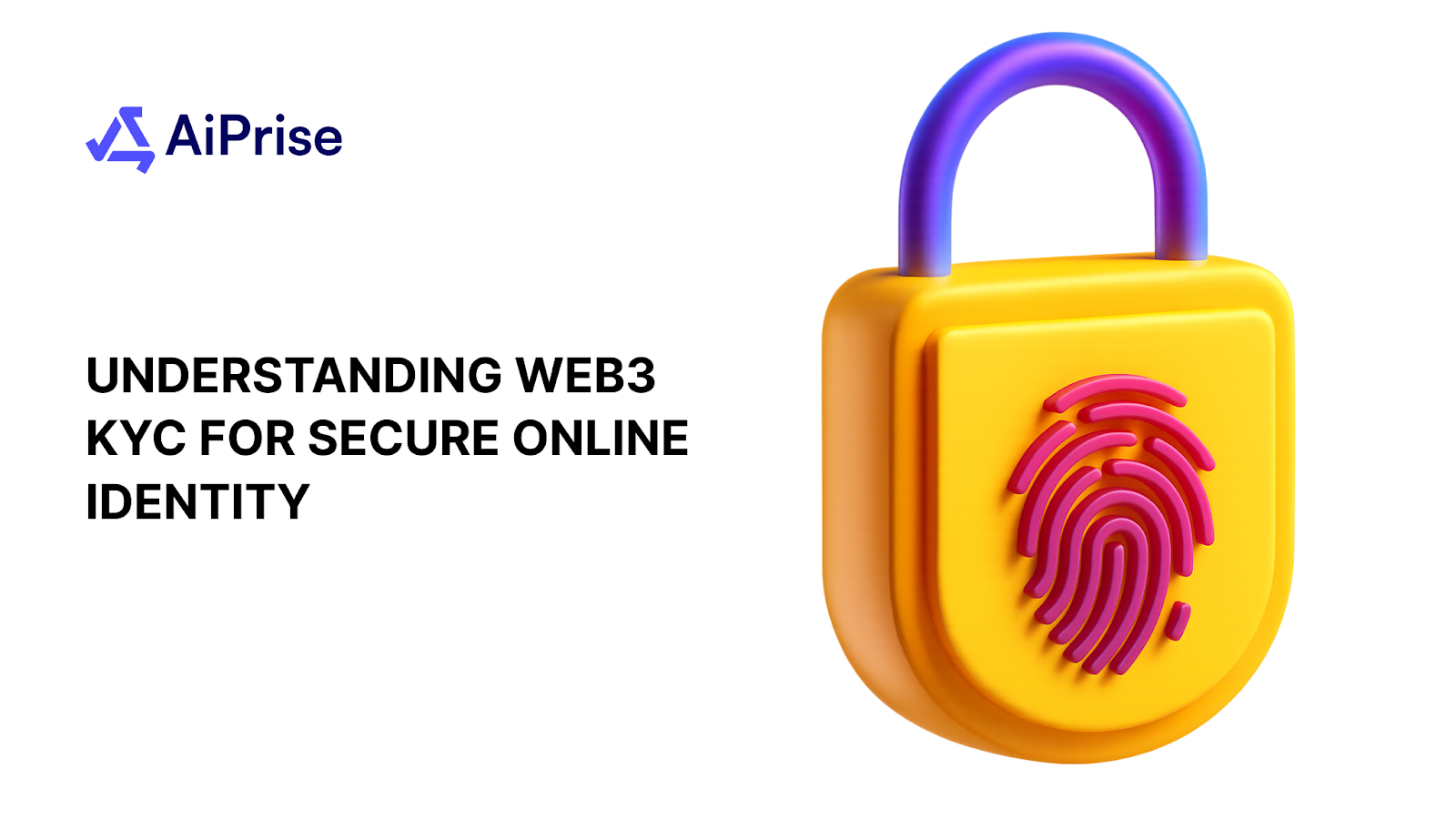
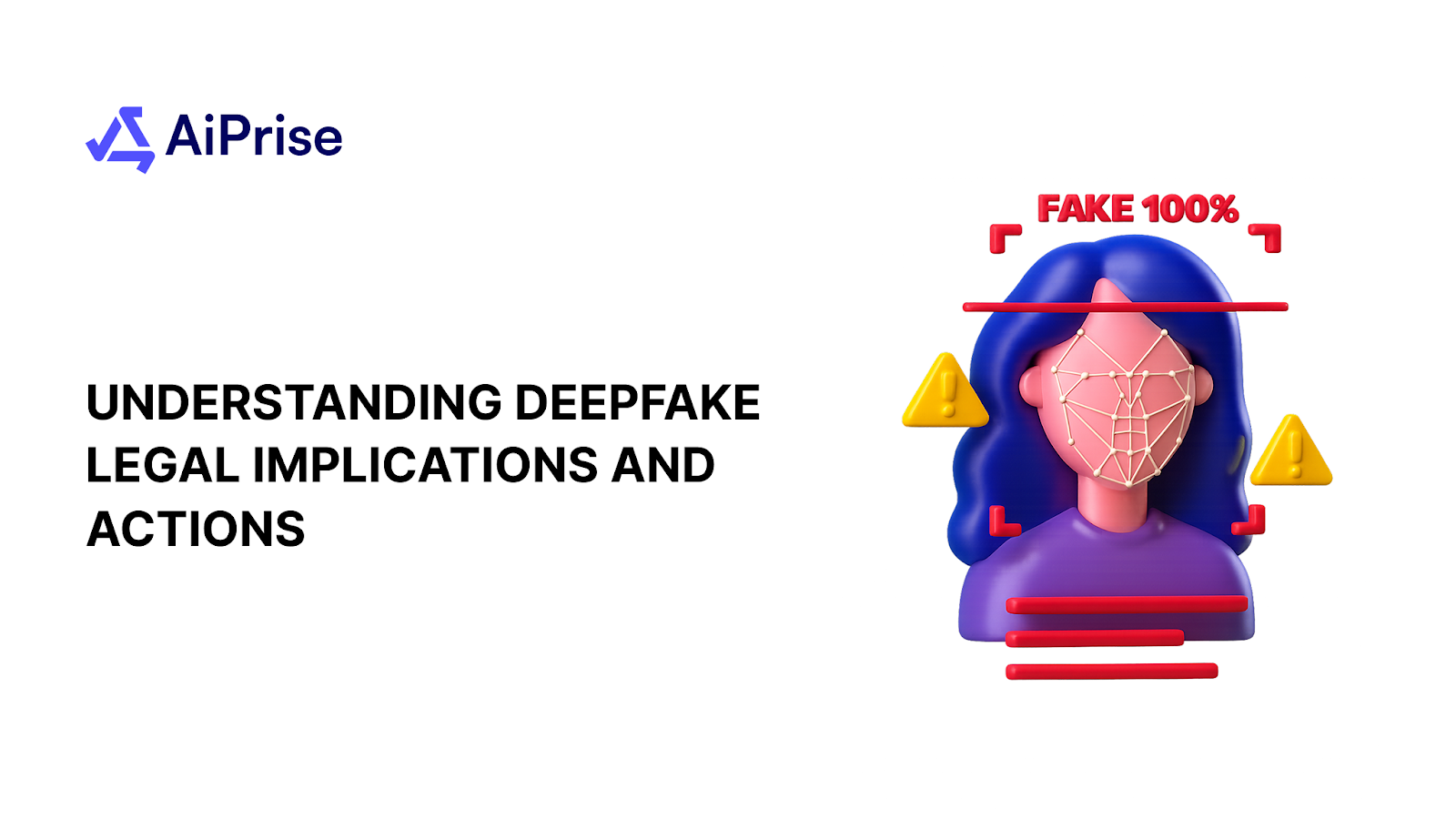
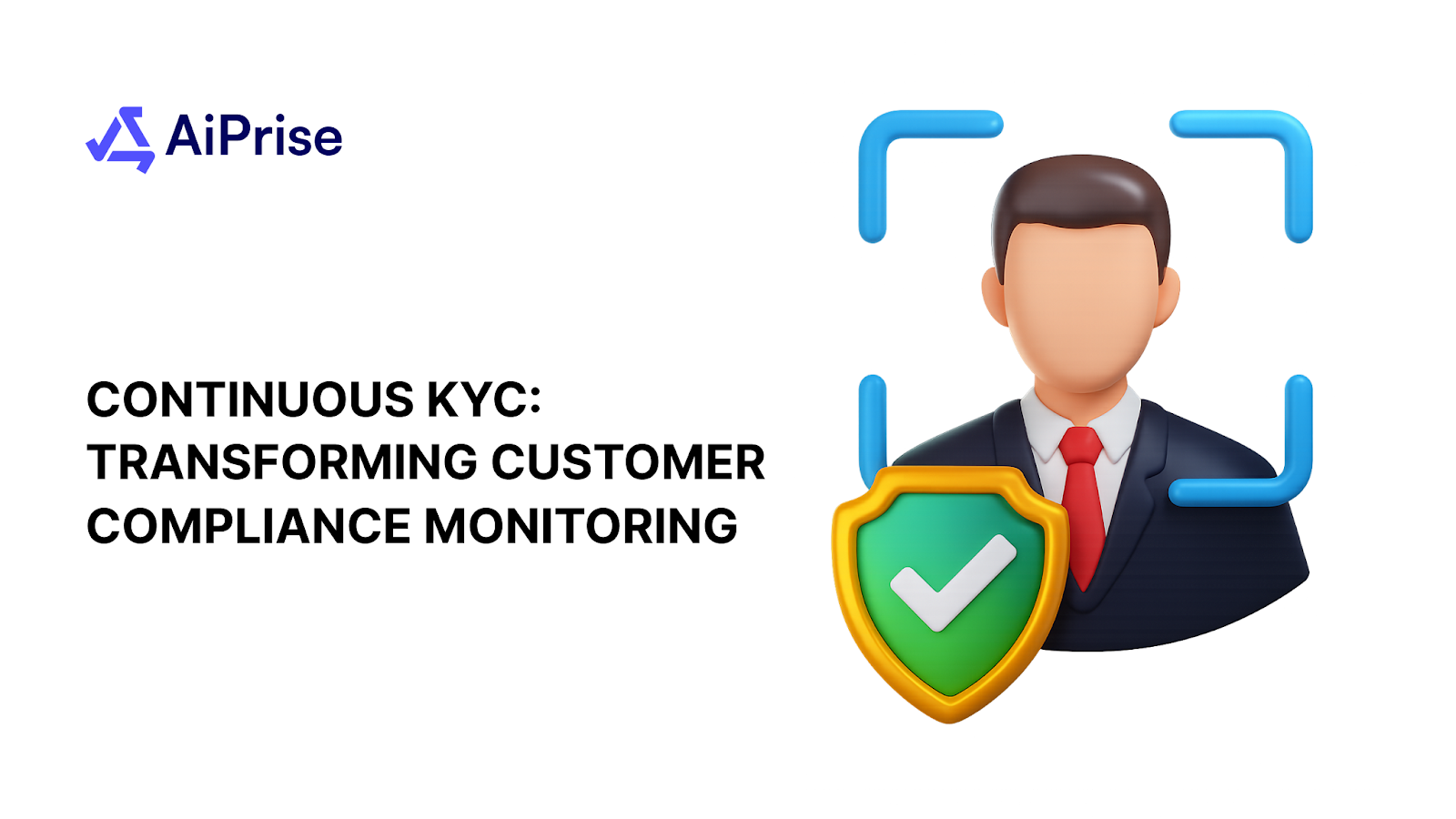
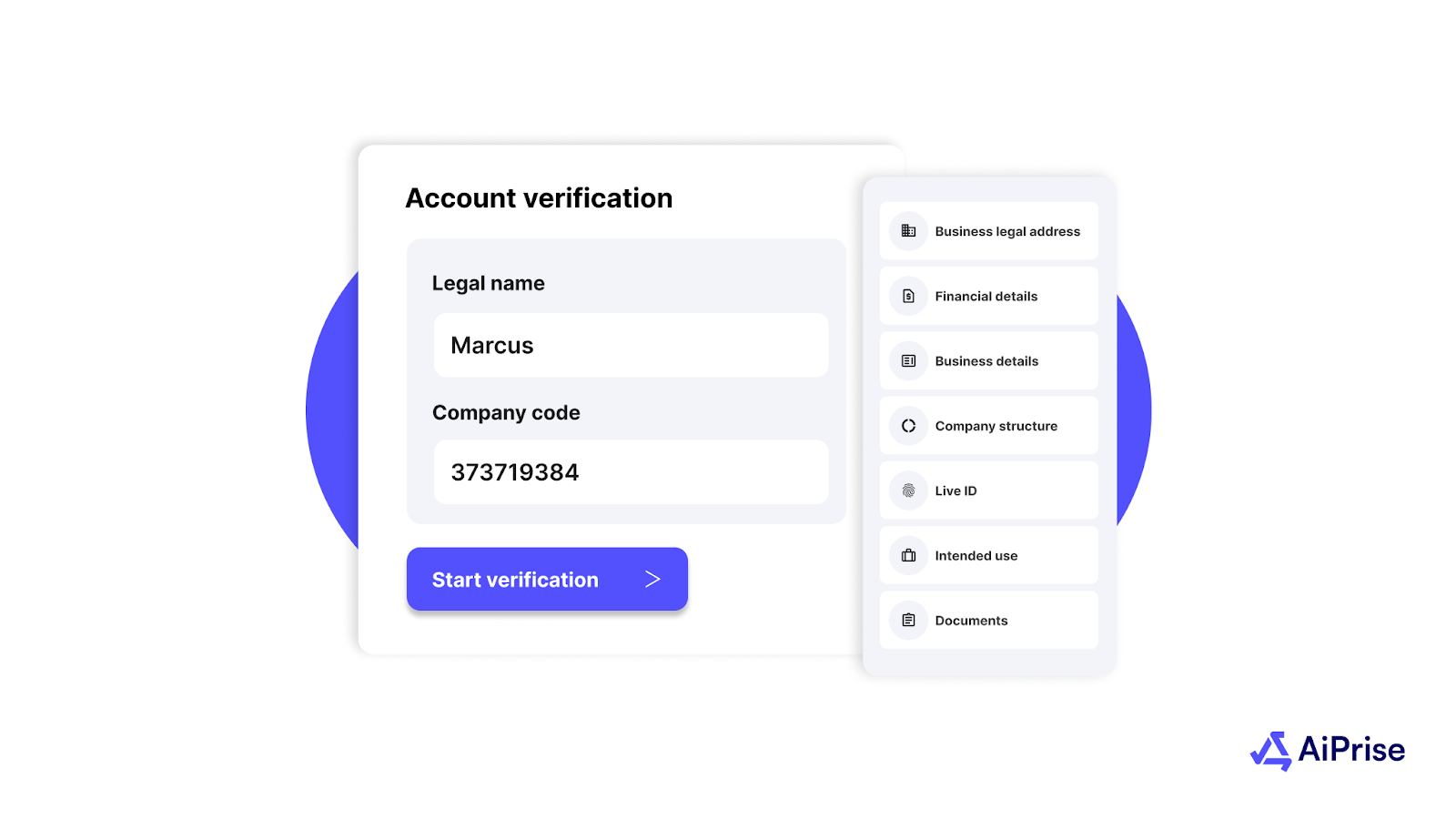
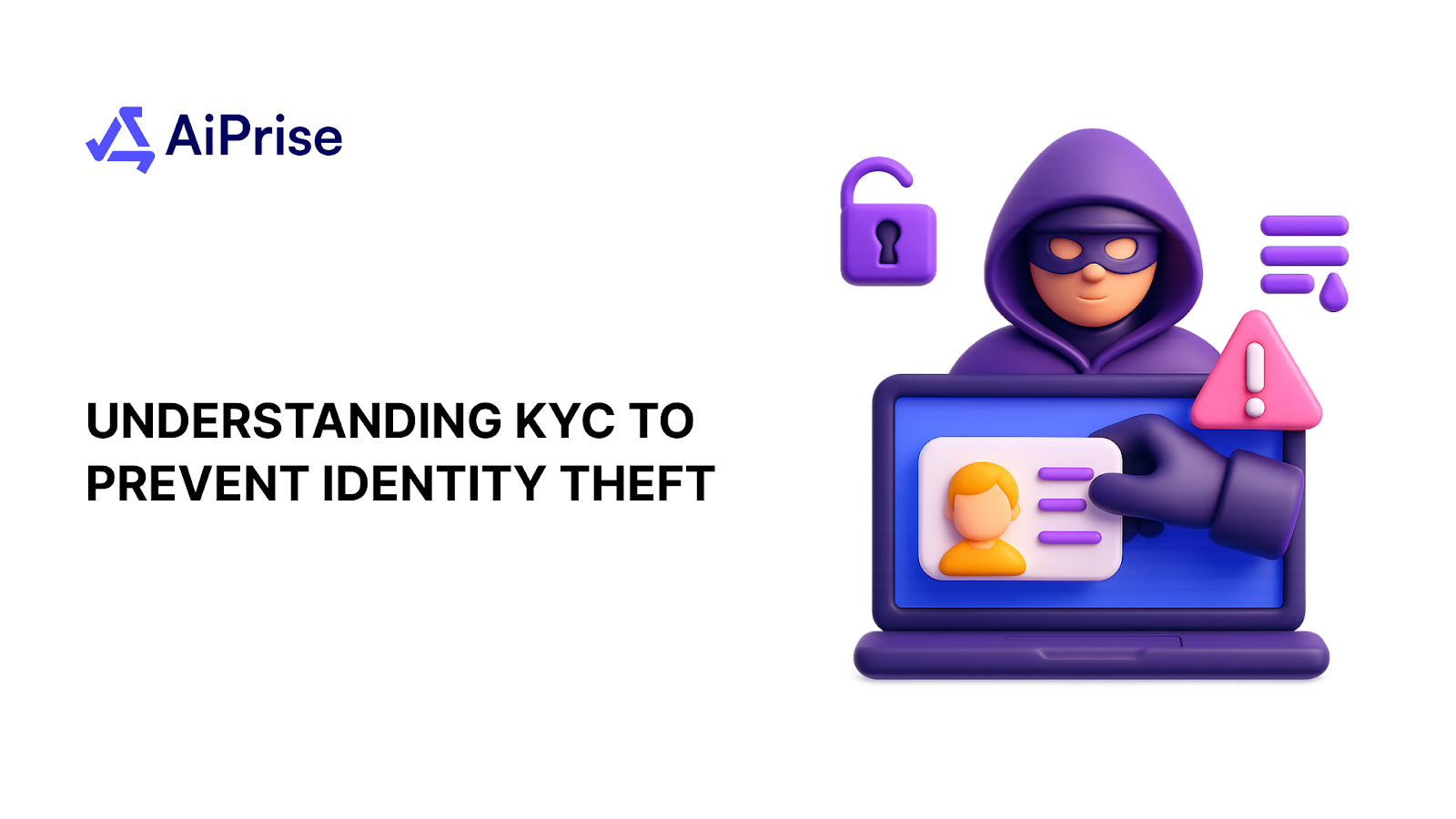


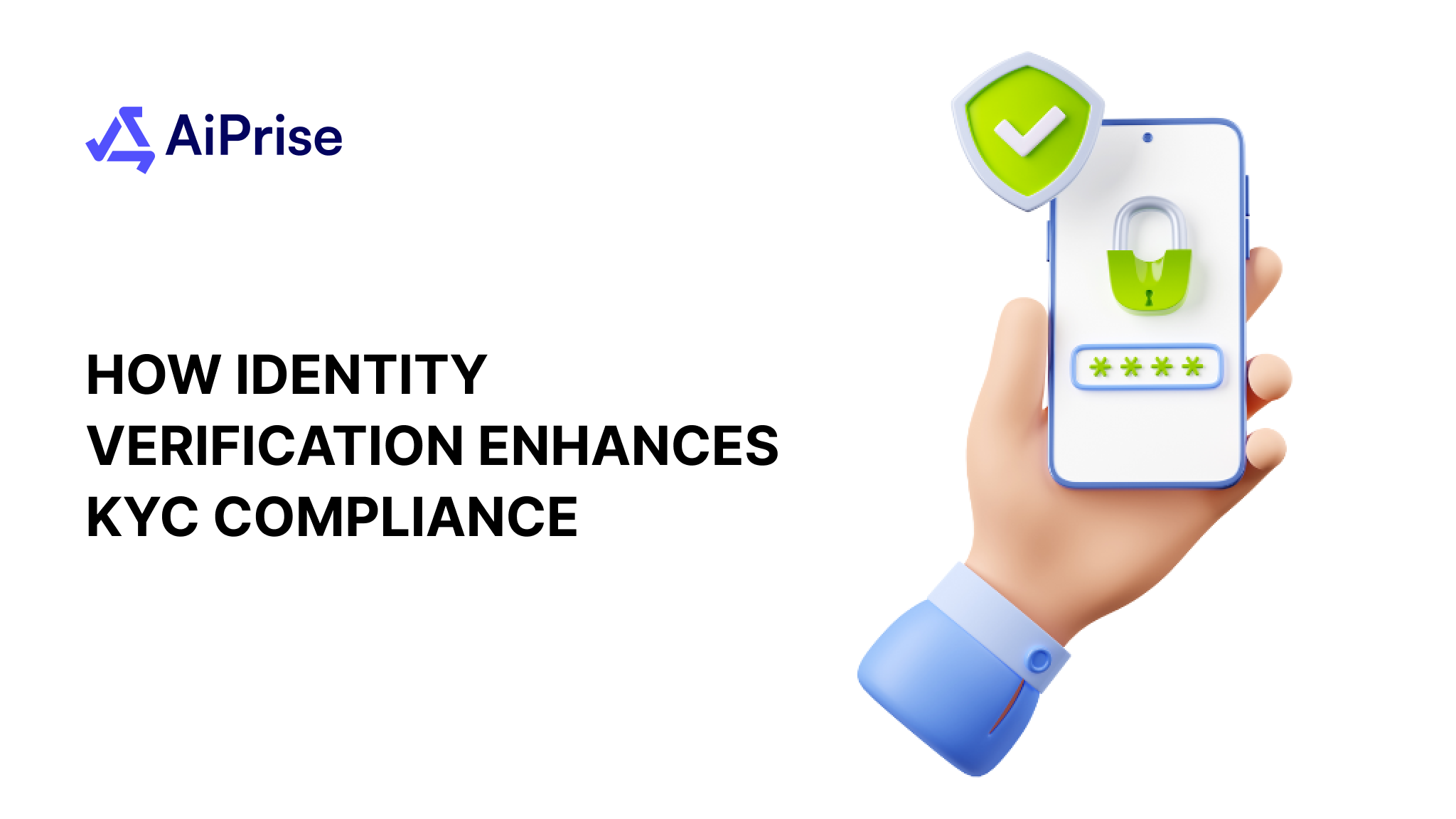


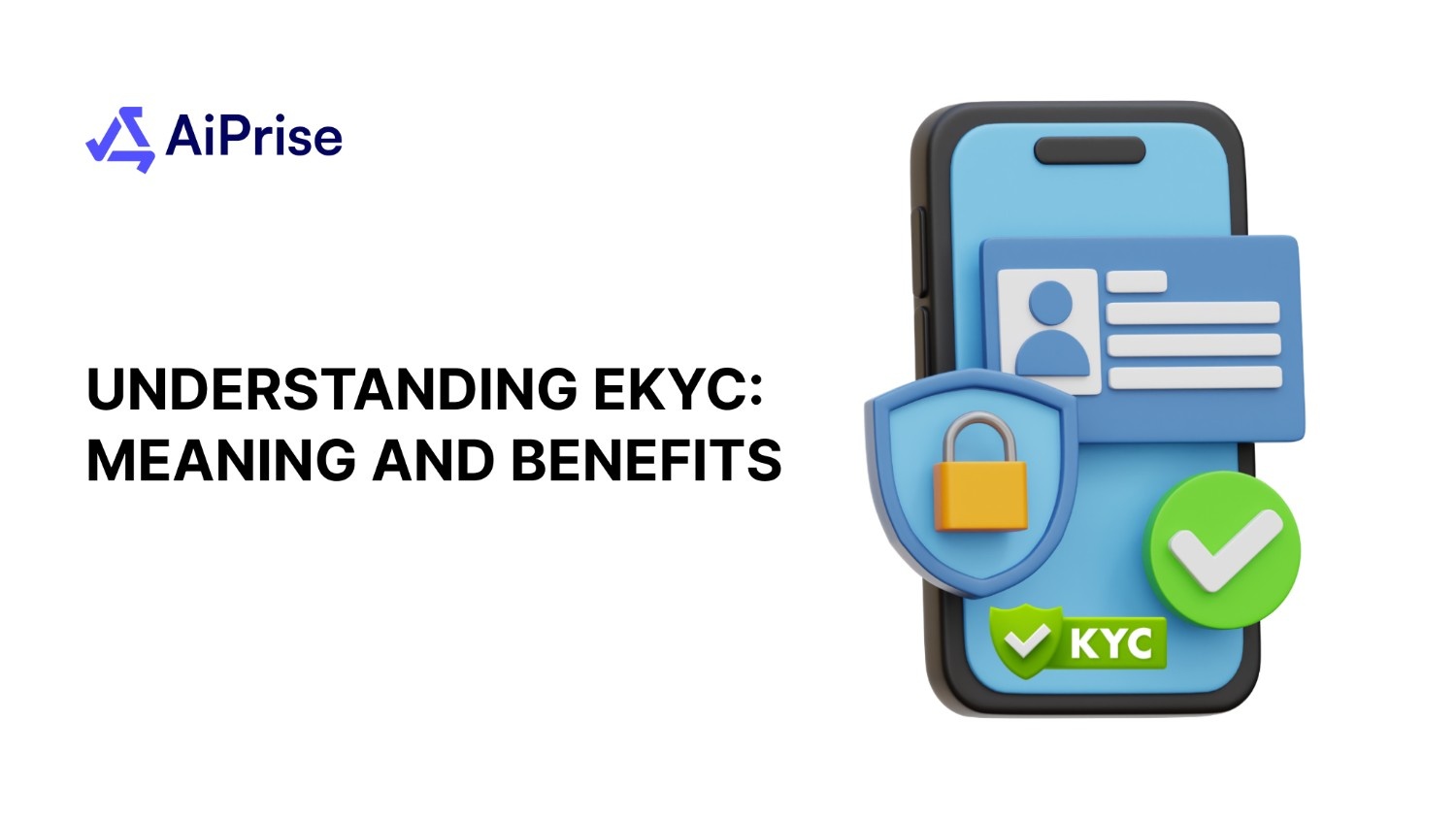
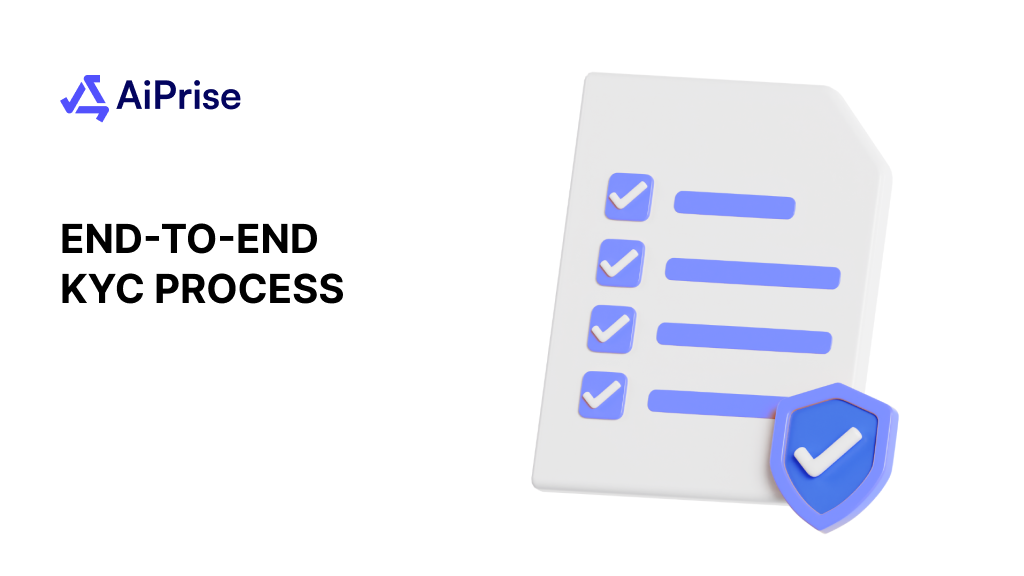
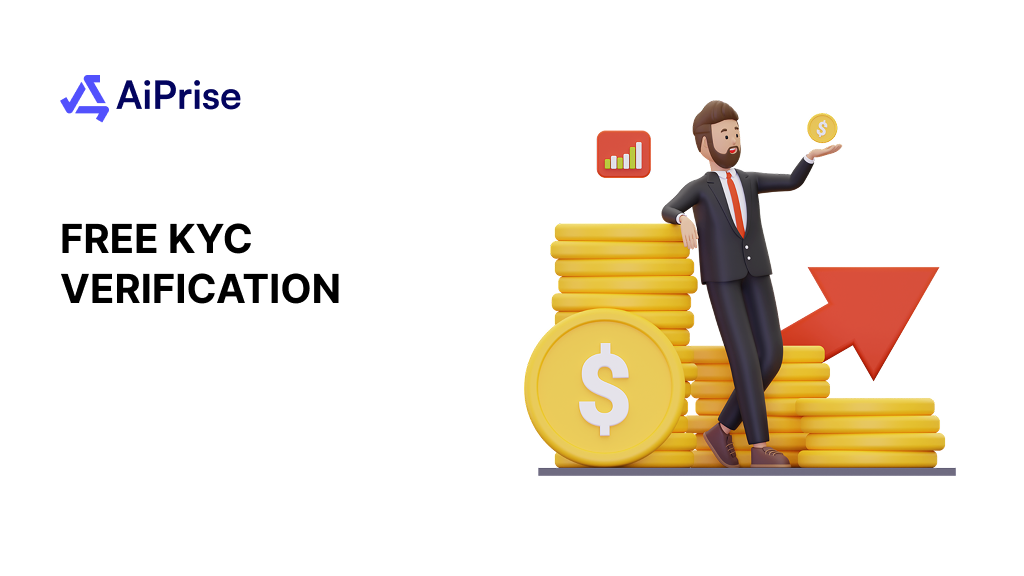
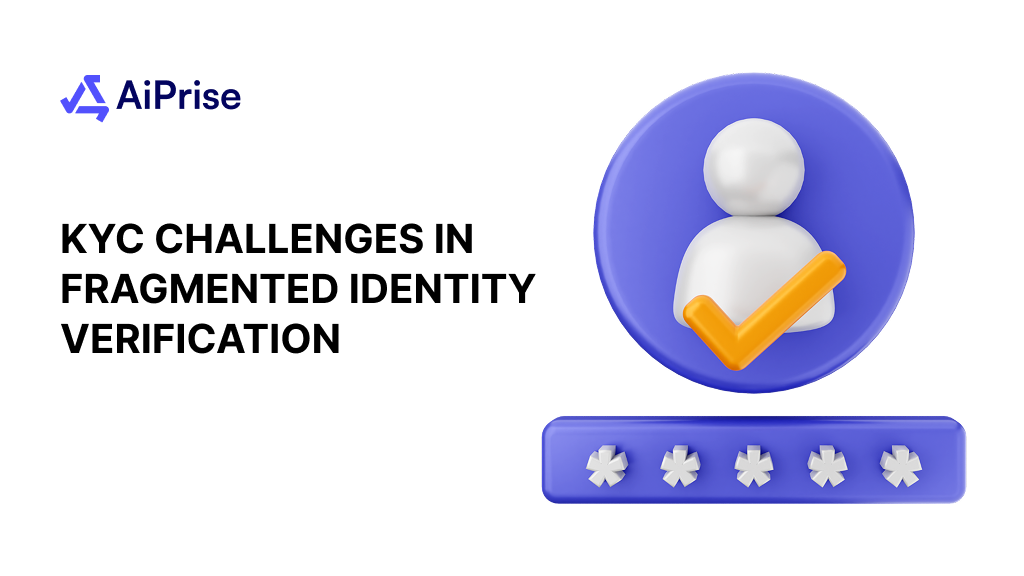
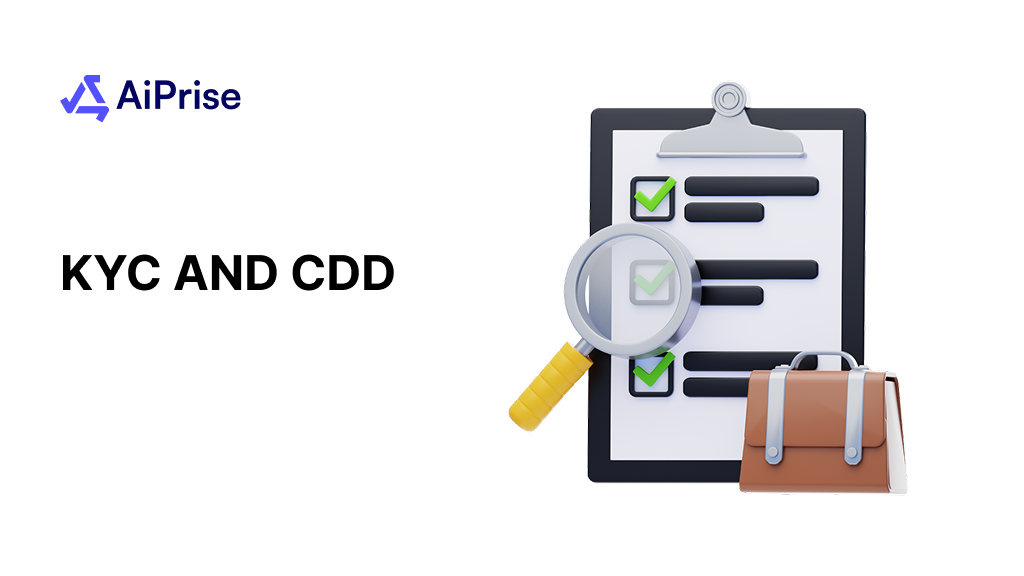








.png)






